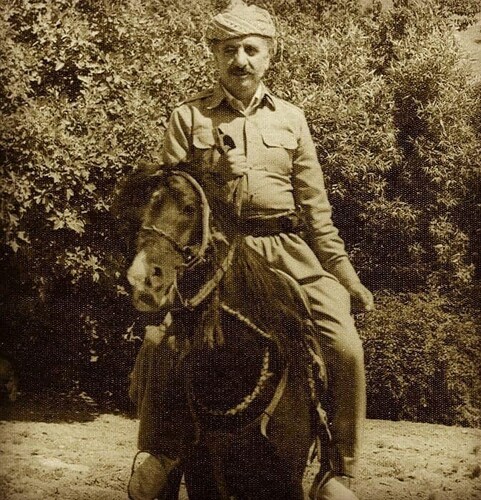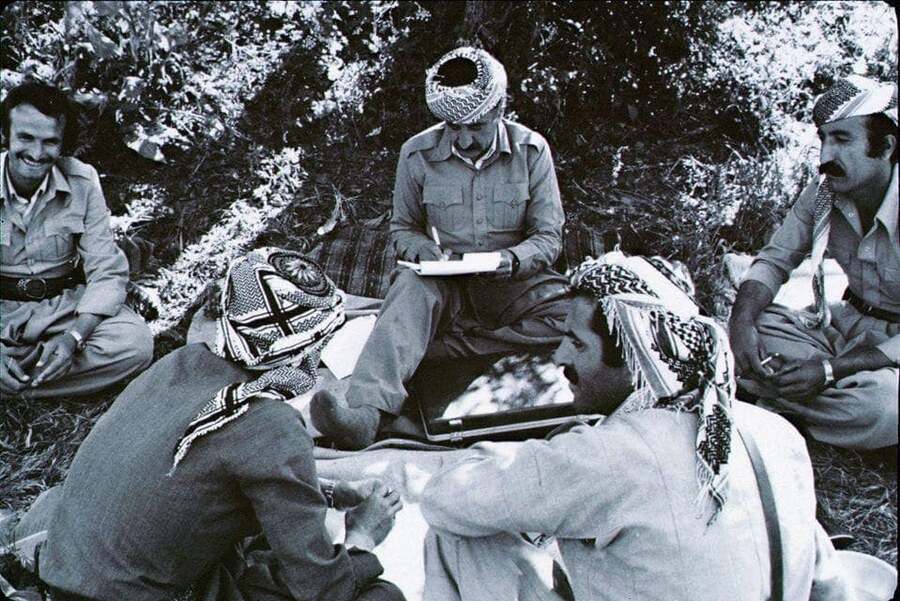The contemporary Kurdish political history in the East part of Kurdistan is full of the names of leaders who have devoted their entire lives to Kurdishness and the struggle for a solution to the national issue of their people. There are many leaders who have sacrificed their lives in this path and their names have become symbols in the struggle of their people. But in this sky full of stars, a sun shines alone, and a figure whose name alone gives glory and faith to the Kurds and their political movement at the global level.
Abdul Rahman Ghassemlou is a well-known name, national symbol, and shining sun that appeared in the political field of the East part of Kurdistan in the 20th century, and not only did he give impetus to the Kurdish movement in that part of Kurdistan, but he also introduced the Kurdish issue in the Middle East as the issue of the largest stateless nation to the world due to his high personality and versatile abilities in political, linguistic and diplomatic fields.
Abdul Rahman Ghassemlou was born in 1930 in Urmia. He was the son of Mohammad Khan Ghassemlou, a prominent political figure in Urmia who was nicknamed "Vossugad Divan" because of his high social status.
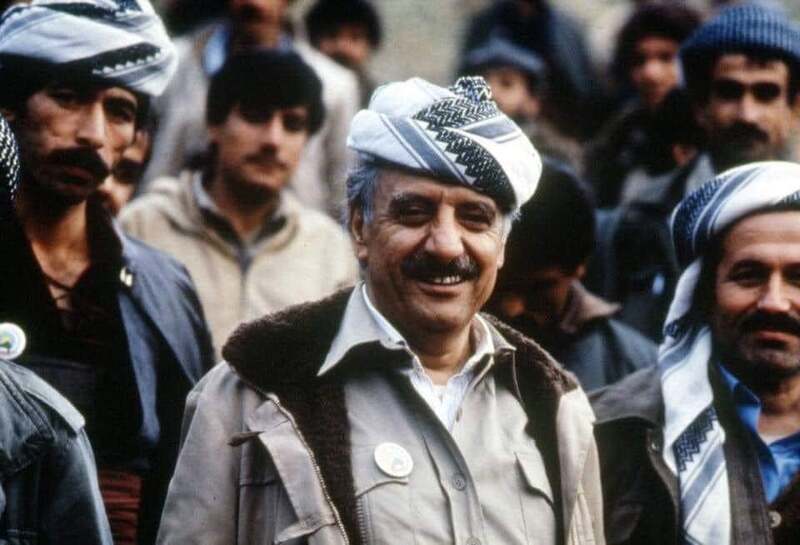
Ghassemlou completed his primary, secondary, and high school education in Urmia and Tehran. After completing his studies in Iran, he went to Turkey to continue his studies and enrolled in the sociology field at Istanbul University. However, after a few months in Turkey, he went to France and continued his studies at Sorbonne University. While in France, he and several other Kurdish students founded the Association of Kurdish Students in Europe. However, due to pressure from Mohammad Reza Shah on the French government, Ghassemlou left Paris and in 1949 went to Prague, the capital of Czechoslovakia, as the first Iranian scholarship of the International Union of Students and continued studies.
Since 1951, Ghassemlou has represented Iranian students at the meetings of the World Students Organization and the World Youth Federation Conference in Budapest.
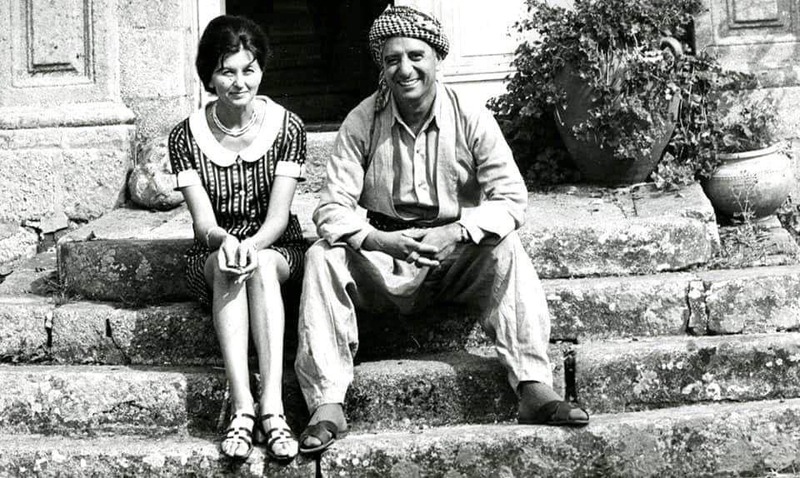
After receiving his bachelor's degree in social and political sciences, Ghassemlou returned to Iran and began his political activities. At that time, there was political and organizational cooperation between the Kurdistan Democratic Party and the Tudeh Party of Iran. Ghassemlou participated in the party's political activities as a party member and represented the Democratic Party in Tehran.
After the coup in August 1953 and the pressure on the left parties, he had to return to Mahabad and continued his underground activities in a secret life away from the eyes of Mohammad Reza Shah's intelligence agencies", and he also was responsible for publishing Kurdistan newspaper, the official language of the Kurdistan Democratic Party.
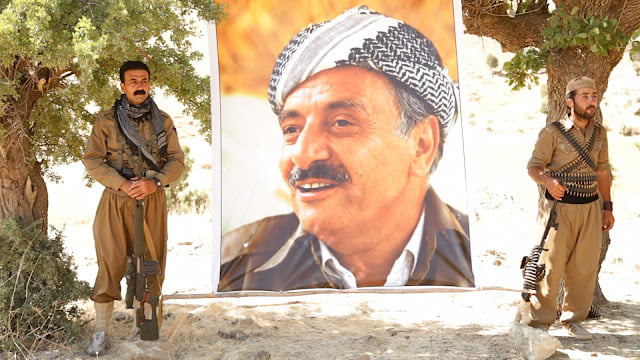
In 1955, Ghassemlou returned to Czechoslovakia and continued his academic studies at the University of Prague. In 1957, he returned to Iran for secret activities, but this time he was arrested and returned to Prague after his release from government forces. In 1958, after the September Revolution and the revival of the Kurdish movement, he returned to the southern part of Kurdistan and tried to reorganize the Democratic Party. However, he was expelled from Iraq in 1960 due to internal conflicts and returned to Prague for the fourth time, where he continued his university studies until he received a doctorate in political economy.
"Kurdistan and the Kurds", which was Dr. Ghassemlou's doctorate thesis, is still one of the richest and most important scientific sources of knowledge about the Kurdish issue and the natural and political geography of Kurdistan.
After receiving his doctorate, Dr. Ghassemlou taught capitalist economics, socialist economics, and economic growth theory at the University of Prague.
That period in the life of Dr. Ghassemlou was a golden age for his scientific experience and political relations. It was during this period that, as one of the world's first leftist political figures, focused on Marxist theories and became convinced of revising the intellectual, political, and economic system. As philosophers such as Bernstein, known as reformist Marxists in political theory, began to review this intellectual and political system, Dr. Ghassemlou also began to review this intellectual and political system from the foothills of the Mountains of East part of Kurdistan, by writing “A Brief Account on Socialism”, while criticizing the existing socialism, critics this kind of socialism and consolidated this reading as the future goal of his party.
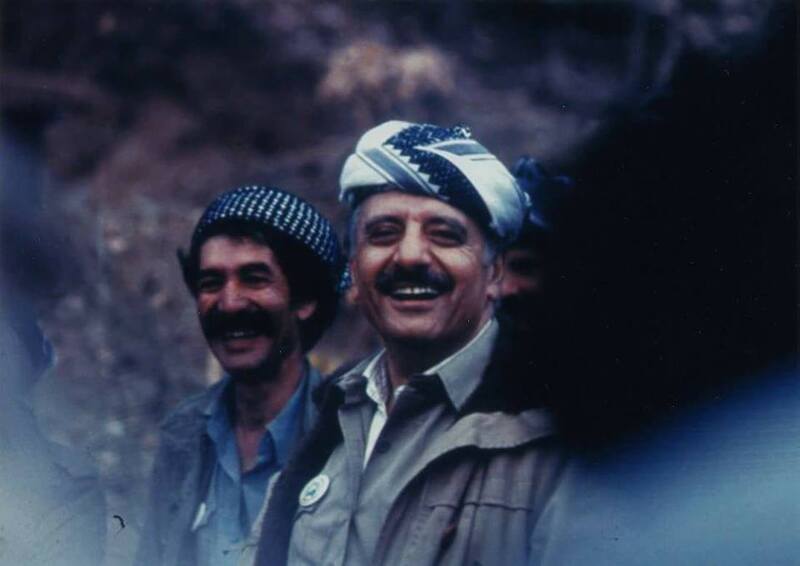
Two decades of the golden period of Dr. Ghassemlou's life and struggle
In 1970, after the March 11 declaration and the agreement between the leaders of the political movement in the South part of Kurdistan and the state of that country, the opportunities for political activity in Kurdistan and Iran increased, so Dr. Ghassemlou returned to the South part of Kurdistan to reorganize the Kurdistan Democratic Party.
Dr. Ghassemlou was elected as a member of the Central Committee and then as the party's secretary at the third congress of the Democratic Party. During the last two decades of his political career, he was elected party secretary by a majority at all party congresses until his assassination.
An important characteristic of Dr. Ghassemlou was trying to internationalize the Kurdish issue while he was able to prove himself as a world-class political figure based on his political and intellectual abilities. Therefore, in many of the political conferences in Europe that he was invited to discuss, he discussed the Kurdish issue as a political and humanitarian issue of a stateless nation and tried to attract the attention and support of political figures and centers to the Kurdish issue.
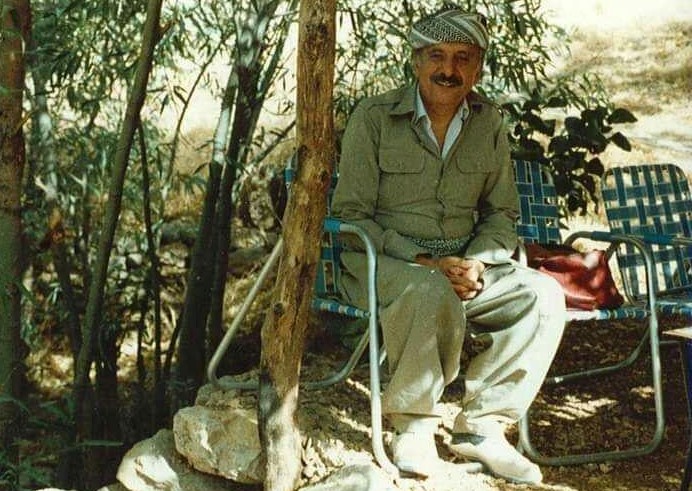
Political efforts of Dr. Ghassemlou in introducing the legitimate struggle of the Kurdish people and the political glory of the KDPI, Ghassemlou opened the door to the Socialist International Organization and brought the voice of the Kurdish political movement to all corners of the world. It was following these efforts that his party, the Kurdistan Democratic Party of Iran, became the first Kurdish party to become a member of the international organization.
At this stage of his political life, Dr. Ghassemlou was able to engineer the internationalization of the Kurdish issue and establish close relations with the world's great diplomats, such as French President Daniel Mitterrand, French President Francois Mitterrand, Algerian President Ahmed Ben Bella, and many other political figures and change the Kurdish issue from a local issue to a global issue.
The political Personality of Dr. Ghassemlou is more evident when we hear it from non-Kurdish politicians and intellectuals. Dr. Frederic Tesso, former French Consul in the Kurdistan Region says, “All the time I have supported the Kurdistan revolution has been because of Ghassemlou's personality. Ghassemlou was my first teacher and I always learned from him. He has been a source of knowledge for me, a Frenchman. Or Professor Philippe Polange says, "Ghassemlou was a well-known academic, a pragmatist, a guerrilla leader, and a moral politician."
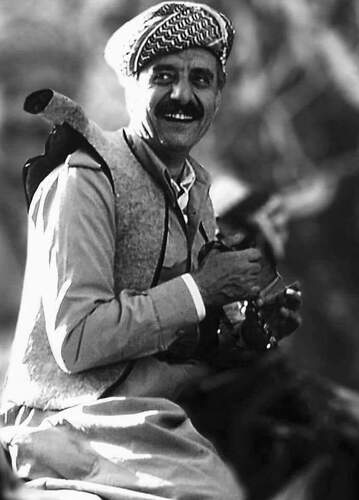
Mehdi Khanbaba Tehrani, president of the Union of Leftist Students in Europe, says in his book "The Left Movement in Iran", “At the beginning of the Iranian People's Revolution, there was no personality that all political forces and leftist parties could agree on to elect as president. There was only one whom everyone thought deserved to lead Iran, Dr. Abdul Rahman Ghassemlou. But because he was Kurdish and Sunni, we refused. Iranian politicians said, How can we entrust the leadership of Iran to a Sunni Kurd?"
Unfortunately, this great Kurdish leader and diplomat who made the Eastern Kurdish issue a topic of interest for Western politicians was assassinated on July 13, 1989, at the age of 59 by Iranian diplomats and terrorists at the negotiating table in Vienna, Austria. His sacred body was buried in the Perlashiz cemetery in Paris, but his dreams became the passion of tens of millions of Kurds in all parts of Kurdistan, just as there was no demonstration, rally, wall, or sign in the Zhina Revolution without saying: "Ghassemlou, Ghassemlou, we'll continue your path".
